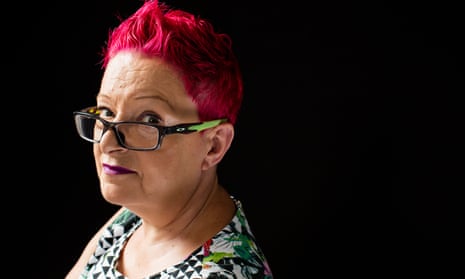Sue Black is easy to spot in the crowded London pub, thanks to her bright red spiky hair. And as soon as we start talking, she is making me wonder why I chose to focus on the arts and humanities at school. Were my teachers influenced by gender stereotypes; or was I? Will more women consider going into technology in the future?
Black, recently appointed professor in computer science and “technology evangelist” at Durham University, speaks with passion about encouraging women to study and teach computer science.
She is very excited about her new job, which she started last week. “My focus will be on women in technology and helping to increase the number of women studying, researching and working in Durham computer science.
“At the moment, most technologies are created by men – and, you know, the users of technology aren’t all men,” she says dryly. “We need the people who create the technology to reflect the makeup of society.”
Her plan is to make computer science at the university “very female-friendly” for undergraduates, postgraduates and staff members. At present, just 12% of the department’s undergraduates and around a third of postgraduates are women. Black wants to see that edge closer to 50%. “The head of the department and I want Durham to be a game-changer. It’s the most exciting role that I could have, because diversity is something I’ve spent my life thinking about.”
Black has won her achievements the hard way. Her mother died when she was 12 and, after her father remarried, she left home at 16, dropping out of her grammar school with no A-levels. She married at 20 and became a stay-at-home mother; at 25, she sought shelter in a women’s refuge with her three small children. “I remember the first morning after I arrived, being sick in the gutter. And then I somehow thought it was going to be all right. I was so glad to be out of that environment where someone was giving me grief.”
By the age of 26, she was a single mother, living in a council flat, nursing a burning desire to return to education. “I’ve always loved learning. I was reading dictionaries and encyclopedias from the age of four or five.” She decided to take a polymaths evening course at Southwark College (now Lewisham Southwark College) and has never forgotten how out of place she felt.
“I had big bushy dyed black afro hair and wore biker jackets, Doc Martens and miniskirts. I walked into this room full of blokes in suits and thought: what have I done?”
It did not stop her, though. “I really wanted to create a better life for my kids. With this course, I could do a lot of study at home. I had three small kids and with only six hours a week in the classroom, I only had to get a babysitter twice a week.”
Black came top of her class, then did a degree in computing at London South Bank University and, in 2001, a PhD in software engineering. She went on to various academic roles and became head of the department of information and software systems at the University of Westminster.
In 2010 she started her own consultancy. She famously led the campaign to save Bletchley Park and founded BCSWomen, an online network for women in tech, along with #techmums, a social enterprise that offers mothers free courses to build up their technology skills.
Two years ago she was given an OBE by the Queen for her services to technology. She’s now a government adviser and is widely recognised as one of the most influential women in IT.
These days she often gets asked for advice by women working in and studying tech who are being bullied, belittled or passed over for promotion – and when I ask her whether, as a female academic, she has personally experienced this, she answers yes without hesitation.
Being bullied has been the hardest thing in her career, she says. Her jocular demeanour disappears as she talks about these experiences, and she looks upset. “Someone’s making your life difficult. You don’t really know why, they are just screwing things up for you. My approach has always been to talk to them first, maybe it’s a misunderstanding. Then go up the chain.
“I guess I am a survivor. All I know is that I’ve kept doing things that have scared me over the years, and luckily for me, it has worked out.”
She says there are days she feels that the world is full of dinosaurs. Universities need to do more to support and encourage female academics, she says, especially those working in male-dominated Stem subjects: “You need someone at the top of the university to think ‘this is an issue and we need to do something about it’.”
Her first step at Durham is to research how universities around the world are encouraging women to study and teach computer science. Making sure her female students have good female role models is likely to be important. “I feel women are missing out on opportunities because they don’t realise what an exciting career it can be.”
Lower down the education ladder, she has ideas for encouraging girls in school to think about technology as relevant to their lives. If she were in charge of the curriculum, technology wouldn’t even be a subject. “There should be technology in every lesson where it’s appropriate. That’s the place that it should have.” She would, though, like schools to replace technology lessons with programming, artificial intelligence and data science.
“We need to change our culture to relate to each other better, so we don’t have to fit into stereotypes,” she says. “At the moment, our whole culture in the UK is misogynist.”

Comments (…)
Sign in or create your Guardian account to join the discussion